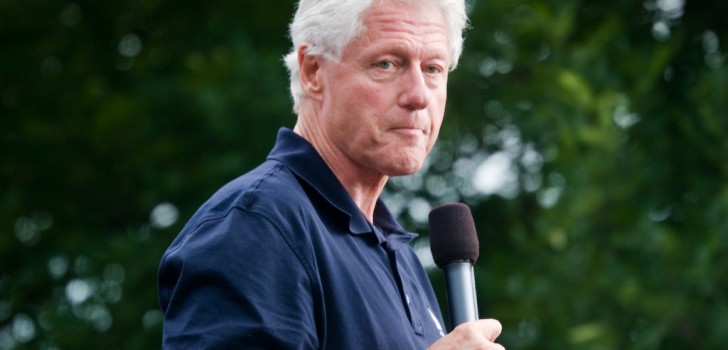Yesterday, former U.S. President Bill Clinton spoke at the annual meeting of the NAACP where he discussed criminal justice system reform where he announced his support for new legislation that would reform his own mandatory minimum sentencing bill he signed into law in 1994. He told the audience that when he signed the bill into law in the ‘90s, the country was in the middle of a drug-and-crime wave and fears of urban violence were very real. While the law included provisions for an increased police presence on the streets and enacted gun control measures, it also included provisions for lengthy sentences for nonviolent offenses. This resulted in harsh sentences that disproportionately affected the poor and minorities.
The 1994 bill, including the federal “three-strikes” provision, led to a drastic decrease in crime throughout the United States. However, so many people were put into jail, there was very little money left to educate and train these prisoners while serving their sentences. Having little chance to reform their ways, many prisoners were reincarcerated soon after their release.
President Clinton’s speech came one day after President Obama addressed the NAACP, where he proclaimed his intention to end mass incarceration. Obama further called for legislation that would reduce or eliminate minimum sentences for nonviolent drug offenses. He claimed that in many places, black and Latino boys and men are treated differently under the current justice system. He further claimed that once prisoners enter the prison system, conditions of many of the facilities are deplorable.
The speeches given by Clinton and Obama came after Obama commuted federal prison sentences of 46 non-violent drug offenders (bringing his tally of commuted sentences to about 90, the most since President Lyndon B. Johnson). Several of the prisoners whose sentences were commuted by Obama were incarcerated for crack cocaine violations. Under the 90’s legislative reform, crack cocaine violations included drastically greater mandatory sentences than sentences given for powdered cocaine violations. As crack cocaine has less street value than powdered cocaine, the discrepancy in laws directly and disproportionately affected minorities and the poor.
It appears that both Republicans and Democrats are committed to reforming the U.S. criminal justice system. members on both sides of the aisle have proposed plans allowing prisoners the ability to reduce their sentences by participating in jobs and other constructive programs. Plans have also been proposed to retroactively apply changes in crack cocaine sentencing laws to prisoners incarcerated several years ago. The issue will likely be a hot topic during the 2016 presidential election.
Stay Connected